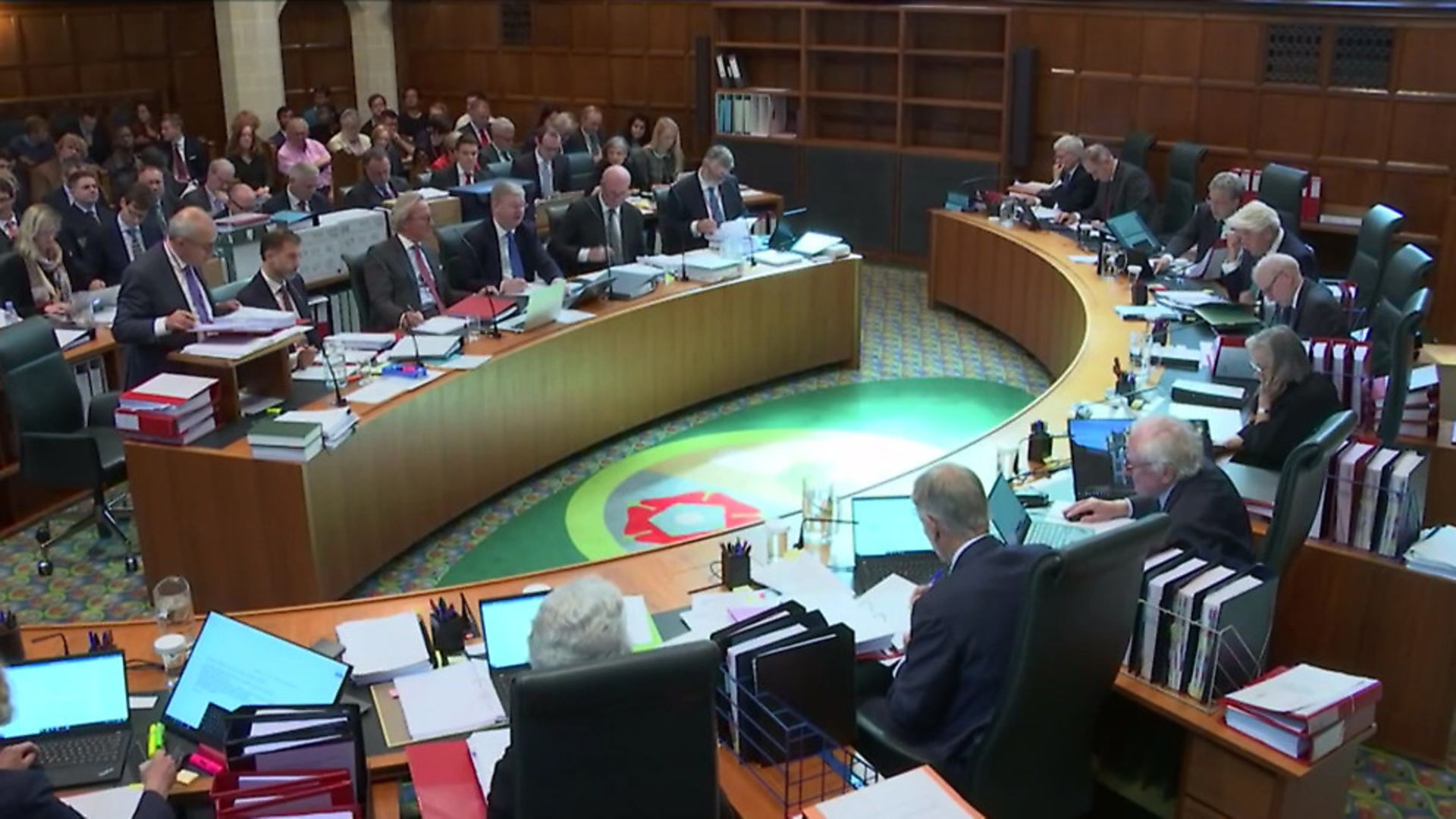
Whichever way the ultimate judgment goes, this week’s case has shone a harsh light on our government, says ZOE WILLIAMS.
This period, waiting for the final judgment of the Supreme Court about the legality of parliament’s prorogation, could be a profoundly interesting time, if only we didn’t have to live here.
For well over three years, we’ve been in a world of bare assertion. At the start, it was simply that inconvenient facts were not mentioned. An entire referendum was fought, without the words ‘Irish border’ or ‘customs union’.
Where incontrovertible obstacles were brought up, the problem was kicked back to the person who raised them: why was that person fear-mongering? Was it because they were trying to deny you your inalienable rights? Was it their vested interest or their elite myopia that motivated them?
Once we’d have called these arguments ad hominem, always playing the man not the ball; but steadily, there was no ball. The facts didn’t exist. Any intimation of any negative outcome, anything that might spark fear was automatically part of Project Fear, and therefore couldn’t be true, since the project itself was malign. The reasoning was so circular as to be a little crazy; it was a discursive sphere into which anyone who might disagree was barred by dint of disagreeing.
From there, things became terribly playground: suddenly, it wasn’t crazy to reject all expertise out of hand, it was crazy not to. We were ‘Remain ultras’; obsessed with our metropolitan facts, and our chattering-class evidence.
The more extreme the Brexit project became, the more extremist it claimed to find its opponents. The more authoritarian its behaviours, the more it was the Remain side who traduced democracy. Strip away the GCSE classics and the fruity vowels, and it’s been six months of “you are” or, for anyone who grew up in the 1980s, “your mum”; wait, hang on, aren’t you lying? “You are”. Haven’t you explicitly disregarded the rule of law, or promised to? “Your mum”.
In such circumstances, political opposition, whatever its hue, becomes not so much inadequate as premature (I know, I know, the cavalry can’t come soon enough; but hear me out…) Before I hear one more word about the world as it is and the future as it could be, from different ideological perspectives, I want to hear someone adjudicate on what is real, what is demonstrable, what is evidenced, what is true.
For that, you need a judge. There is a reason why Dominic Cummings and the Daily Mail focus their animus on independent arms of state; respectively, the civil service and the “jazz loving” or “Francophile” judges. Nothing personal, guys: it’s just that independent adjudication is incredibly inconvenient, when you’re gunning for a world in which there is no independence, only passions, entirely righteous or entirely fallacious.
The law is notoriously reluctant to wade in on political questions, for good reason. It is more art than science. “Non-lawyers,” Jo Maugham – the lawyer and campaigner who headed this week’s case – said, straight from the Supreme Court hearing on Tuesday, “sometimes think the job of being a judge is a mechanistic one, a sort of AI. As soon as you start thinking about why we care about a judiciary, you see very clearly that the law is rather more art than science.”
If these are human judgements, you need to believe above all that they can be impartial. The more entangled they become in the dirtier partialities of politics, the less that is trusted. However, as much as courts don’t wish to intervene, when the issue at stake is the rule of law, they more or less have to.
David Howarth, professor of constitutional law at Cambridge University, spelled out the implications of a government that was prepared even to threaten its non-compliance with the law. This was shortly after the prime minister signalled, through unnamed spokespeople, that he might not comply with the Benn bill which blocked no-deal, and passed into law at lightning sped at the start of the month.
“When you’re wondering what law will the government not follow next, this will lead to a crisis in the institutions. Who is it that the civil service will obey? Who is it which the police will obey? The army? These people are playing with things they do not understand.”
If a government chooses to ignore the law, the litigious avenues are as follows: a judicial review, which can lead to a mandatory order, backed by an injunction, and people who disobey injunctions are in contempt of court. They can be fined, imprisoned or have their assets sequestered.
It is possible to launch a civil action, misfeasance in public office. Anyone who would suffer irreparable damage from the government ignoring that law can get an injunction as a civil action. It is also a crime; not one that you could expect the police to do much about, but private prosecutions would be possible.
If all of that failed, impeachment is still on the table: It only became obsolete because there were other ways of holding people in public office to account.
But ideally, you’d want parliamentary action: contempt of the House, which is brought by the speaker, or a vote of no confidence, since the best way to deal with a government which ignores the rule of law is to get rid of it and find one that respects it.
A parliament that isn’t sitting can’t take a vote of no confidence, or do anything else, except appear on Andrew Marr or take to Twitter: so all roads lead back to this Supreme Court case. Did the prime minister act legally or not? The Scottish courts, of course, have already found that he did not.
Maugham is absolutely solid on this point: he thinks the prime minister has lost this case. “The government’s position is so stark that I can’t imagine that a court would agree with it.” Boris Johnson’s argument is twofold: Parliament couldn’t choose whether or not it was suspended, it was up the executive to decide, and they did not need a reason. “We have a prime minister taking the position that it could suspend parliament for four years,” Maugham says. Further more, according to the government’s case, this is not judicable: the courts have no role, here. “So that reduces parliament to a plaything of the executive,” he adds.
This is an unenviable case to have to argue in court, since the principle of parliamentary sovereignty is paramount, and has been for centuries. It would have been much easier if the government had been able to argue that parliament had been prorogued for good and proper reasons, a short-term and practical measure.
That was the original intention: The rumour is, they couldn’t find anyone at Cabinet Office level prepared to swear an affidavit to that effect. It appears that, underneath all the sound and fury, there isn’t anyone so loyal that they actually want to go to prison. And this leaves them in an awkward position, since, as Maugham says “a dog in the street could see that it had happened to avoid Brexit facing parliamentary scrutiny”.
Interestingly, it is not so much the progress – or arrest – of Brexit that preoccupies the legal minds behind this case. The government is running out of ways to avoid accountability on that score.
Rather, the constitutional deterioration has been so fast that it is really difficult to tell how we repair it: rebuild the institutional trust upon which stability relies. This sounds rather dry and theoretical, set against the dramas of Brexit and its unravelling, but when the law rides to the rescue, the least we can do is take it seriously.
Warning: Illegal string offset 'link_id' in /mnt/storage/stage/www/wp-includes/bookmark.php on line 357
Notice: Trying to get property 'link_id' of non-object in /mnt/storage/stage/www/wp-includes/bookmark.php on line 37







